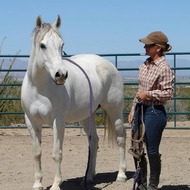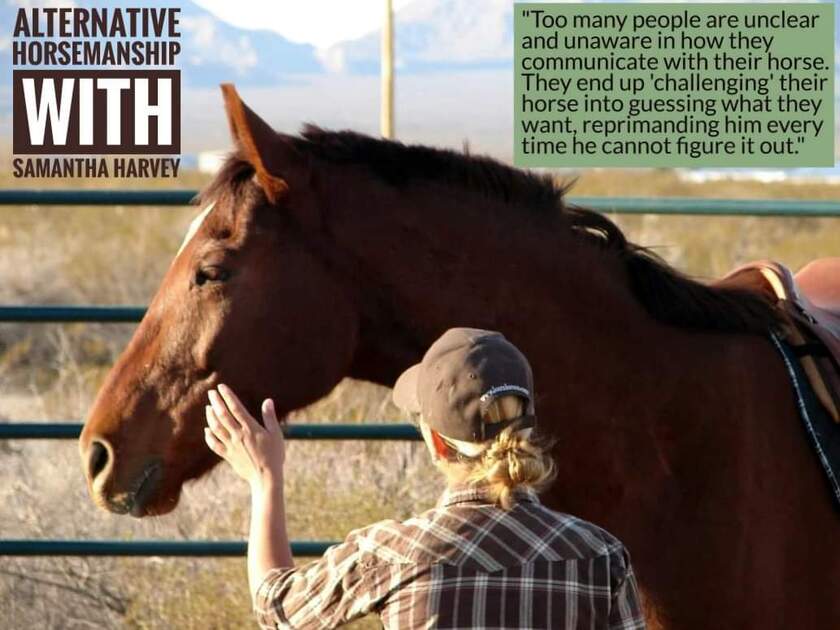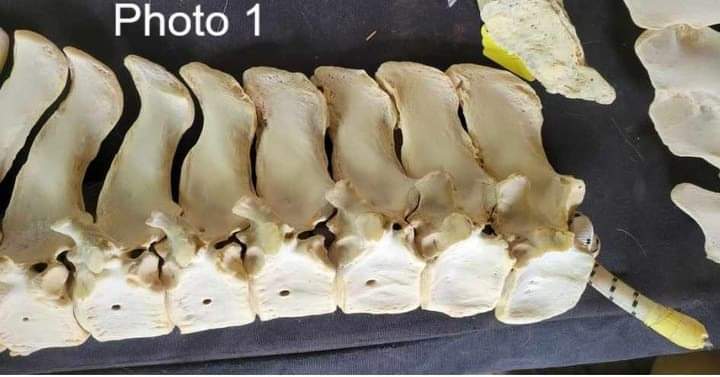
Alternative Horsemanship™ with Samantha Harvey was developed from three decades of equine-related experiences as an equestrian student, equine competitor, horse instructor, mentor, equine business consultant, and offering horsemanship clinics worldwide.
Sam offers many services including starting colts and rehabilitating "difficult" horses, working with various breeds, ages, and disciplines at both a local and national level. She teaches horsemanship clinics, groundwork, horseback riding lessons, and more. Her Alternative Horsemanship training approach helps competitive and pleasure riders of all levels and backgrounds. She offers in-person learning focusing on equine behavior in groundwork and riding sessions, along with her Remote Horse Coach programs (check out the 200+ video catalog https://remotehorsecoach.uscreen.io ) helping horse enthusiasts worldwide in her distance horse coaching. Her goal is to help riders interpret and understand horse behavior to refine their communication and build trust with their horses.
She has lectured, presented, and offered demos at equine symposiums and expos. Sam has taught horsemanship skills and equine behavior to pre-veterinary students, has been a featured speaker on nationally syndicated radio programs, and regularly posts to her award-winning horse blog. She also has a regular Horse Trainer column and has contributed to several published horsemanship books.
Samantha Harvey offers specialized horsemanship clinics worldwide having worked previously in South America, the Caribbean, the South Pacific, and throughout North America. She hosts several intensive Equine Retreats each season helping horseback riders refine their mental, emotional, and physical approach to improve their partnership with the horse.
This community is designed for folks to learn in twice-monthly livestreams focusing on improving your horse skills, raising self-awareness, increasing your understanding of the horse, refining your timing and communication, and much more. Subscribe for access to the live videos and become a part of a horse community that values considering, acknowledging, and believing the horse to build lasting, meaningful relationships.
Do you value the horse's feedback? Do you see the horse's behavior as insight into what may have been missed in his education? Do you prioritize addressing the horse's communication in a manner that has value to him, without triggering his fear?
Horse Training Tips
Teaching the Horse to Learn how to learn, think, search, and try while building his confidence, willingness, and adaptability.
Full video on the Alternative Horsemanship YouTube Channel
#alternativehorsemanship #horses #horsetraining #horsebehavior
Equine Emergencies & Horse Evacuations
Please comment, like & share
Emergency Evacuation YouTube Video 1
https://youtu.be/52RflMZoP4w
Emergency Evacuation YouTube Video 2
https://youtu.be/jRCmOTq9mto
Meet Peggy. (Re-Post shared by follower.)
Peggy is the skeletal remains of a polo pony mare that was euthanized due to dangerous behavior. It was said that she, and I quote, "was trying to kill people".
The first image is of Peggy's thoracic spine. The spinous processes of her vertebrae directly under where the saddle would be not only have no space between them, but have rubbed so hard against each other that they wore holes in the adjacent bones. Attachment points for tendons and ligaments further down on the vertebrae are spiky and sharp and feature errant bony deposits where her body was trying to support soft tissue structures that were under tremendous abnormal strain.
The second picture is of the ventral aspect of Peggy's lumbar spine. This is the view you would have if you laid down on the ground on your back underneath skeleton Peggy and looked up towards the sky. Not only does she have areas where the vertebrae are trying to fuse to stabilize her back, she has an enormous 1.5" bony growth ...
To keep communication as streamlined as possible, please take a minute to read the latest update
http://eepurl.com/iXHO2I
Emotions have been "high" here in the USA... and the residual effects will remain. Some folks are feeling very confident, while others are devastated. Either way, many equine enthusiasts "seek refuge" in spending time with their horse as a reprieve from politics, daily life stresses, and the future unknowns...
I wanted to offer a gentle reminder of how much the horse mirrors human emotions during interactions by sharing a story that occurred at the end of a six-day Alternative Horsemanship clinic a few years back.
A participant was recalling the interaction he'd had with his horse that morning before arriving. Things had not gone as he anticipated, and he used negative human emotional terms to describe the horse's behavior.
As we spoke, the horse stood nearby, saddled and in a halter and lead rope. There was lots of slack in the rope as the man loosely held it, and he was facing me as he spoke, with the horse a slight distance behind him. As the student started talking, the horse fussed, flipped ...















